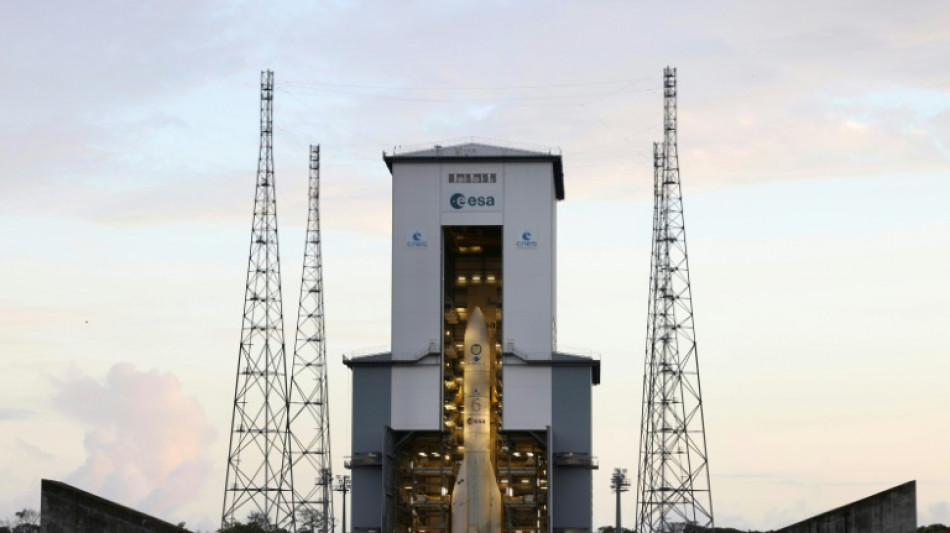
-
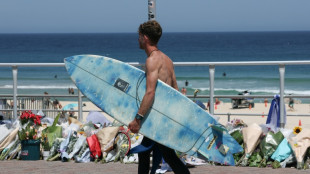 Australian announces gun buyback, day of 'reflection' after Bondi shooting
Australian announces gun buyback, day of 'reflection' after Bondi shooting
-
Joshua takes huge weight advantage into Paul fight

-
 TikTok signs joint venture deal to end US ban threat
TikTok signs joint venture deal to end US ban threat
-
Conway's glorious 200 powers New Zealand to 424-3 against West Indies

-
 WNBA lockout looms closer after player vote authorizes strike
WNBA lockout looms closer after player vote authorizes strike
-
Honduras begins partial vote recount in Trump-dominated election

-
 Nike shares slump as China struggles continue
Nike shares slump as China struggles continue
-
Hundreds swim, float at Bondi Beach to honour shooting victims
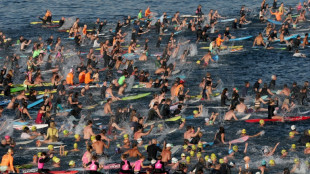
-
 Crunch time for EU leaders on tapping Russian assets for Ukraine
Crunch time for EU leaders on tapping Russian assets for Ukraine
-
Pope replaces New York's pro-Trump Cardinal with pro-migrant Chicagoan

-
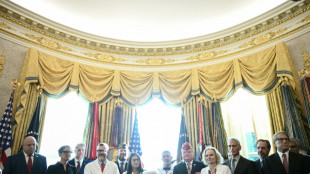 Trump orders marijuana reclassified as less dangerous drug
Trump orders marijuana reclassified as less dangerous drug
-
Rams ace Nacua apologizes over 'antisemitic' gesture furor

-
 McIlroy wins BBC sports personality award for 2025 heroics
McIlroy wins BBC sports personality award for 2025 heroics
-
Napoli beat Milan in Italian Super Cup semi-final

-
 Violence erupts in Bangladesh after wounded youth leader dies
Violence erupts in Bangladesh after wounded youth leader dies
-
EU-Mercosur deal delayed as farmers stage Brussels show of force

-
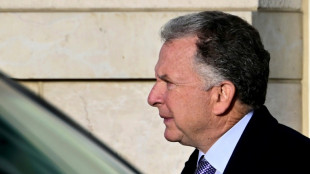 US hosting new Gaza talks to push next phase of deal
US hosting new Gaza talks to push next phase of deal
-
Chicago Bears mulling Indiana home over public funding standoff

-
 Trump renames Kennedy arts center after himself
Trump renames Kennedy arts center after himself
-
Trump rebrands housing supplement as $1,776 bonuses for US troops

-
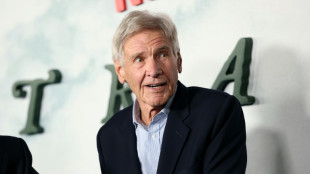 Harrison Ford to get lifetime acting award
Harrison Ford to get lifetime acting award
-
Trump health chief seeks to bar trans youth from gender-affirming care
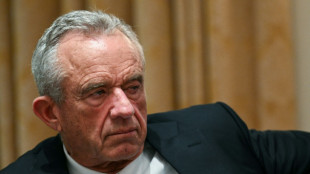
-
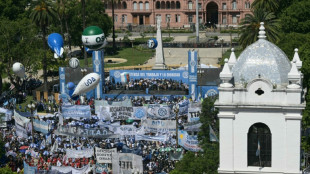 Argentine unions in the street over Milei labor reforms
Argentine unions in the street over Milei labor reforms
-
Trump signs order reclassifying marijuana as less dangerous
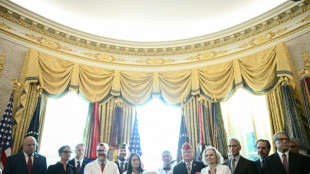
-
 Famed Kennedy arts center to be renamed 'Trump-Kennedy Center'
Famed Kennedy arts center to be renamed 'Trump-Kennedy Center'
-
US accuses S.Africa of harassing US officials working with Afrikaners

-
 Brazil open to EU-Mercosur deal delay as farmers protest in Brussels
Brazil open to EU-Mercosur deal delay as farmers protest in Brussels
-
Wounded Bangladesh youth leader dies in Singapore hospital

-
 New photo dump fuels Capitol Hill push on Epstein files release
New photo dump fuels Capitol Hill push on Epstein files release
-
Brazil, Mexico seek to defuse US-Venezuela crisis

-
 Assange files complaint against Nobel Foundation over Machado win
Assange files complaint against Nobel Foundation over Machado win
-
Private donors pledge $1 bn for CERN particle accelerator
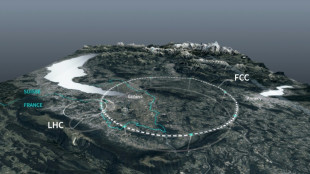
-
 Russian court orders Austrian bank Raiffeisen to pay compensation
Russian court orders Austrian bank Raiffeisen to pay compensation
-
US, Qatar, Turkey, Egypt to hold Gaza talks in Miami
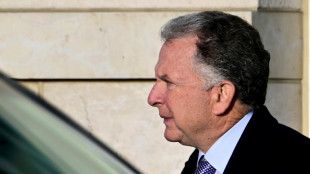
-
 Lula open to mediate between US, Venezuela to 'avoid armed conflict'
Lula open to mediate between US, Venezuela to 'avoid armed conflict'
-
Brussels farmer protest turns ugly as EU-Mercosur deal teeters

-
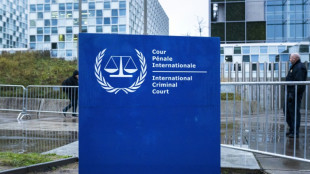 US imposes sanctions on two more ICC judges for Israel probe
US imposes sanctions on two more ICC judges for Israel probe
-
US accuses S. Africa of harassing US officials working with Afrikaners

-
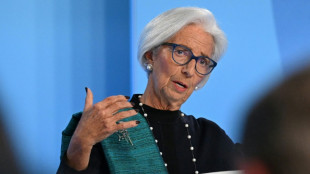 ECB holds rates as Lagarde stresses heightened uncertainty
ECB holds rates as Lagarde stresses heightened uncertainty
-
Trump Media announces merger with fusion power company

-
 Stocks rise as US inflation cools, tech stocks bounce
Stocks rise as US inflation cools, tech stocks bounce
-
Zelensky presses EU to tap Russian assets at crunch summit

-
 Pope replaces New York's Cardinal Dolan with pro-migrant bishop
Pope replaces New York's Cardinal Dolan with pro-migrant bishop
-
Odermatt takes foggy downhill for 50th World Cup win

-
 France exonerates women convicted over abortions before legalisation
France exonerates women convicted over abortions before legalisation
-
UK teachers to tackle misogyny in classroom

-
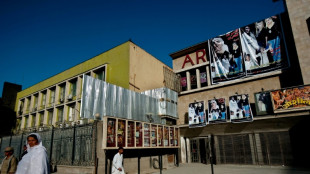 Historic Afghan cinema torn down for a mall
Historic Afghan cinema torn down for a mall
-
US consumer inflation cools unexpectedly in November

-
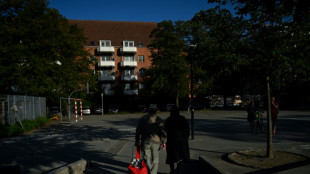 Danish 'ghetto' residents upbeat after EU court ruling
Danish 'ghetto' residents upbeat after EU court ruling
-
ECB holds rates but debate swirls over future


Europe's new Ariane 6 rocket blasts off for first time
Europe's new Ariane 6 rocket blasted off for the first time smoothly on Tuesday, carrying with it the continent's hopes of regaining independent access to space.
The much-delayed inaugural flight of the European Space Agency's most powerful rocket yet launched from Europe's spaceport in Kourou, French Guiana at 4pm local time (1900 GMT).
Crews on the ground at the launch site, which is surrounded by jungle on the South American coast, applauded as the rocket soared into clear skies.
Ariane 6's first launch, which was originally planned for 2020, is hoped to bring an end to a difficult time for European space efforts.
Since the last flight of its workhorse predecessor, Ariane 5, a year ago, Europe has been unable to launch satellites or other missions into space without relying on rivals such as Elon Musk's US firm SpaceX.
ESA chief Josef Aschbacher said it was a "very important moment for Europe".
"We are re-establishing independent access to space for Europe," he said just before the launch.
- 'First sigh of relief' -
Earlier Tuesday, the giant metal structure housing the rocket was rolled away, unsheathing the 56-metre (183 feet) behemoth in light rain, an AFP journalist observed.
After a positive weather report, the rocket's tanks were filled with liquid hydrogen and liquid oxygen.
The planned time for liftoff was delayed by an hour after routine checks revealed a small data issue that was resolved, according to the ESA.
Tony dos Santos, Kourou technical manager, said that teams on the ground would only be able to "breathe our first sigh of relief when the first satellites have been released".
That is expected an hour and six minutes after liftoff. The entire flight is scheduled to take nearly three hours.
The mission will be considered successfully complete when the rocket's reusable upper stage splashes down into the Pacific Ocean.
In Kourou, more than 200 experts were concealed in a bunker near the launch site, checking for any potential problems before liftoff.
They were in constant contact with the Jupiter control room, the communications hub between the teams -- and data sent from the rocket.
A large number of armed forces also watched over the launch, including three fighter jets deployed to deter any curious aircraft nearby.
Successful inaugural flights are by no means guaranteed. Historically, nearly half of the first launches of new rockets have ended in failure. That includes Ariane 5, which exploded moments after liftoff in 1996.
But out of 117 launches over nearly 20 years, only one other Ariane 5 flight completely failed.
- Europe's 'return' -
Space has become big business and competition is soaring, particularly from SpaceX's fully re-usable Falcon 9 rockets.
Yet in recent years Europe has found itself without an independent way to give lucrative satellites a ride into space.
Russia pulled its Soyuz rockets, long used for European launches at Kourou, after Moscow invaded Ukraine in 2022.
Later that year, Europe's Vega-C light launcher was grounded after a launch failure. Ariane 6 delays compounded the crisis.
Tuesday's launch will mark Europe's "return" to the space scene, ESA space transportation director Toni Tolker-Nielsen said.
Selected by the ESA back in 2014, Ariane 6 will able to place satellites in geostationary orbit 36,000 kilometres above Earth, as well as satellite constellations a few hundreds of kilometres up.
The rocket's maiden flight will carry 17 different "passengers", including 11 university micro-satellites, as well as re-entry capsules and small scientific experiments.
One more Ariane 6 launch is scheduled for this year, followed by six in 2025 then eight in 2026.
In the future, it is booked to launch some of Amazon's Kuiper constellation of internet satellites.
O.Karlsson--AMWN


